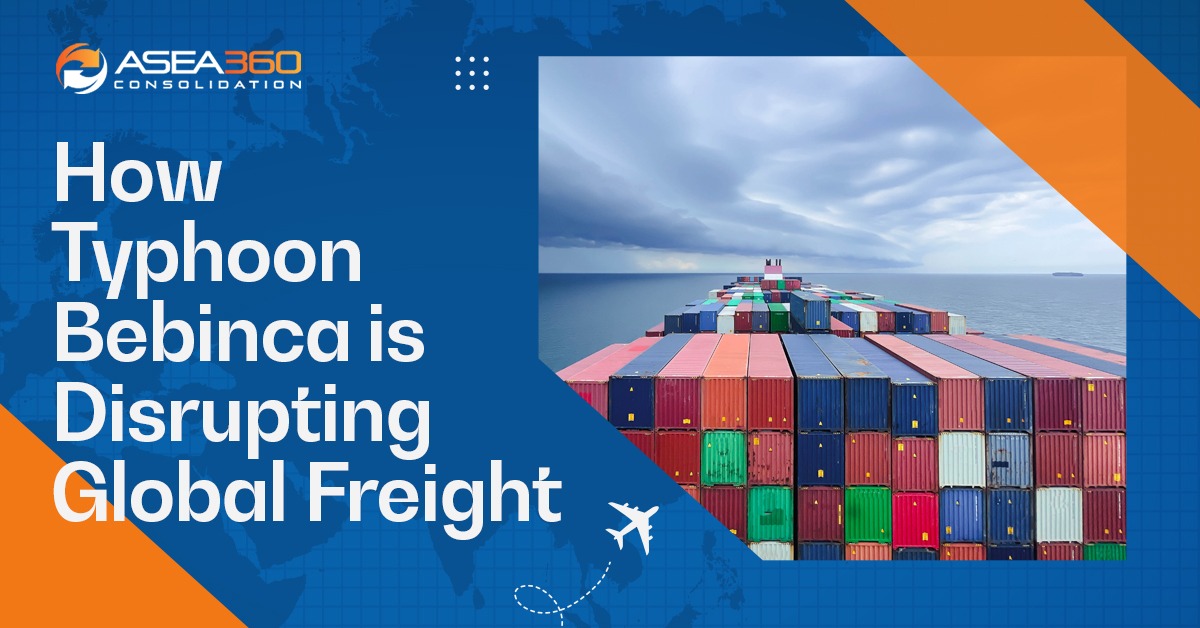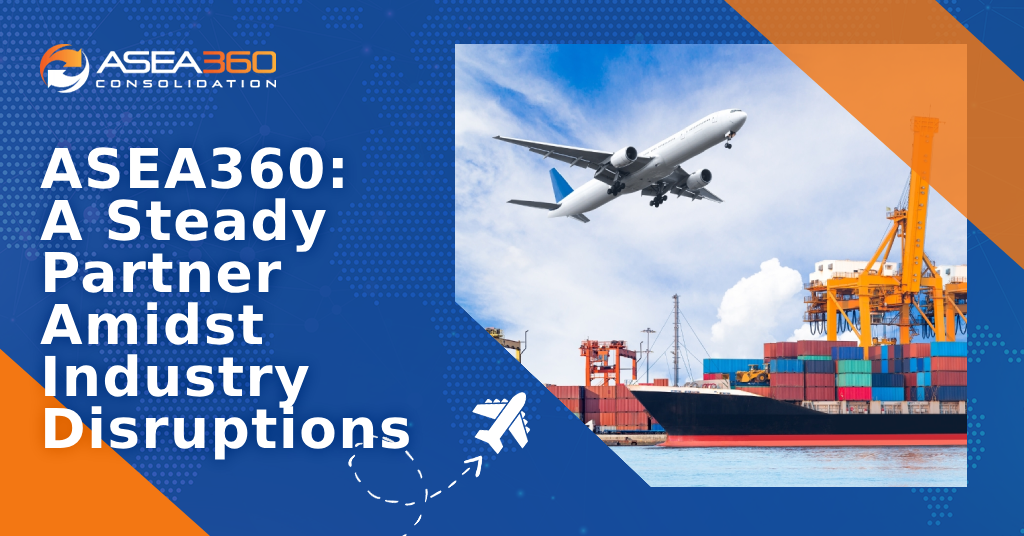Typhoon Bebinca, one of the strongest storms to hit Shanghai since 1949, has thrown the freight forwarding industry into chaos. With ports clogged and vessel schedules delayed, forwarders are facing major headaches. This isn’t just another weather event; it’s a freight crisis.
Ports are overwhelmed, ships are stuck, and delivery times are stretching beyond their limits. How can freight forwarders, who are already under pressure, adapt? Let’s explore what’s happening and how companies like ASEA360 and others in the industry can keep their operations running despite the storm.
The Storm Hits Hard: Shanghai and Beyond
Typhoon Bebinca’s strength caught many by surprise. Shanghai’s container terminals shut down as ships were ordered to move away from the port before the storm hit. Now those vessels are piling up, creating “vessel bunching,” where ships are delayed trying to dock all at once.
Ports like Ningbo, another key point in China’s logistics network, saw a 90% drop in vessel arrivals. These delays don’t just affect China. They create ripples worldwide, leading to significant slowdowns in shipping schedules and congestion at ports across the globe.
Freight Forwarders’ Biggest Challenge: What’s Next?
If you’re a freight forwarder, you’re probably asking, “How much worse can this get?” Here’s the deal: Chinese ports are struggling to catch up, meaning schedules are uncertain. For companies that rely on these ports, the impact is felt in two main ways:
- Cargo processing delays: Vessels are waiting over 60 hours to berth, leading to longer arrival times.
- Congestion at destination ports: As ships arrive late, other ports also get backed up, which delays cargo movement even further.
The bottom line? Freight forwarders face potential delays in customer supply chains, missed delivery dates, and higher costs. Keeping customers informed and adjusting expectations will be crucial for managing through this time.
How Forwarders Can Adapt
While it seems daunting, there are ways for freight forwarders to reduce the impact of Typhoon Bebinca. Here’s how consolidators like ASEA360 can pivot:
- Alternative Routes: Major ports like Shanghai and Ningbo may be critical, but they’re not the only options. Liaising with the final client to explore smaller or less congested ports can help bypass bottlenecks.
- Flexible Transport Methods: If sea freight is severely delayed, air freight, though more expensive, may be a quicker alternative for urgent shipments.
- Transparency with Clients: Keeping customers informed about their shipments is critical. Clear communication will help businesses adjust and keep clients happy.
The Freight Rate Puzzle
Port congestion typically pushes freight rates up, but in this case, something different is happening. With demand for cargo currently low, competition among carriers for market share may keep freight rates steady. This means forwarders must watch the situation closely and be ready for any shifts in pricing.
What Forwarders Can Do to Stay Ahead
For freight forwarders, Typhoon Bebinca’s impact on shipping schedules is serious, but it’s not the end of the world. Here’s what you can do:
- Add extra time to your delivery schedules to account for delays.
- Explore alternative ports or shipping routes to avoid bottlenecks.
- Keep your clients updated about the status of their shipments so they can plan accordingly.
FAQs
How long will the delays last?
Delays could last weeks or even months as ports work through backlogs.
What can forwarders do to manage these delays?
Consider diversifying routes, adjusting transportation methods, and communicating regularly with clients to minimise the impact.
Will other ports be affected?
Yes. Delays at Chinese ports will create a domino effect, slowing down shipping worldwide.
What should freight forwarders focus on?
Forwarders should prioritise clear communication with clients, explore alternative shipping routes, and stay on top of freight rate changes.
ASEA360: Your Partner in Navigating Shipping Delays
Typhoon Bebinca is shaking up global shipping, but forwarders that stay adaptable will weather the storm. ASEA360 is here to help. Whether you need to reroute shipments, shift to air freight, or just stay updated, we’ve got your back. Logistics is tough right now, but with the right partner, you can still keep your freight moving. Ready to get your freight moving again? Reach out to ASEA360 now!
Please call us today on +61-3-8346-0166 or leave an enquiry!




